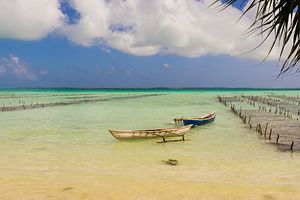The International Organisation for Migration (IOM) predicts there will be somewhere between 25 million and 1 billion people [internally or externally displaced] by the effects of climate change by 2050, with 200 million the closest specific estimate.
The fate of these people is a distinctly moral question for developed nations that have contributed the majority of greenhouses gas emissions for decades and continue to do so today. Are those responsible for rising sea levels responsible for those who end up underwater?
This moral dilemma has a legal dimension, with a lack of clarity in international law to cover the issue.
Earlier this month the New Zealand High Court of Appeal struck down the case of Ioane Teitiota who sought to set a precedent by becoming the world’s first climate change refugee, calling his claims “fundamentally misconceived.”
Teitota was a subsistence fisherman who moved with his family from the tiny South Pacific island nation of Kiribati to New Zealand in 2007 to escape the environmental impacts that are slowly making the islands inhospitable.
Kiribarti lies roughly half way between Australia and Hawaii and comprises 33 atolls. With a population of around 100,000, it is one of a string of island states that are slowly being engulfed by rising sea levels. Scientist predict that the entire nation will be underwater by the end of the century while Kiribati President Anote Tong has said the islands will be inhospitable by 2030.
The Court of Appeal ruled the claims “novel” and “unconvincing,” while pointing out that giving asylum to Teitota would be used as a precedent for thousands of people who face similar climate change related impacts.
“At a stroke, millions of people who are facing medium-term economic deprivation, or the immediate consequences of natural disasters or warfare … would be entitled to protection under the Refugee Convention.”
Lawyers for Teitota tried to argue that he faced “passive persecution” from climate change, however the court ruled that the definition of persecution did not meet that of the Refugee Convention.
The ruling said, “The appellant raised an argument that the international community itself was tantamount to the ‘persecutor’ for the purposes of the Refugee Convention. This completely reverses the traditional refugee paradigm.”
“Traditionally a refugee is fleeing his own government or a non-state actor from whom the government is unwilling or unable to protect him. Thus the claimant is seeking refuge within the very countries that are allegedly ‘persecuting’ him.”
“No one should read this judgment as downplaying the importance of climate change. It is a major and growing concern for the international community. The point this judgment makes is that climate change and its effect on countries like Kiribati is not appropriately addressed under the Refugee Convention.”
The unwillingness of the New Zealand judges to step outside what is clearly defined in the Refugee Convention and set an international precedent is perhaps understandable. The apathy of the international community is less so.
The conservative government in Australia is currently winding back pricing mechanisms meant to encourage businesses to reduce carbon emissions. As one of the world’s largest polluters that is unwilling to curb its emissions, it would seem only logical then that Australia take some responsibility for climate refugees from neighbouring islands.
While New Zealand is set to deport Teitota and his family back to Kiribati, Tong has already purchased land in Fiji as a possible resettlement site for the nation’s people. That contigency measure notwithstanding, from Kiribati to the Maldives, across the Asia-Pacific, the fates of those most vulnerable to climate change are increasingly uncertain.
































